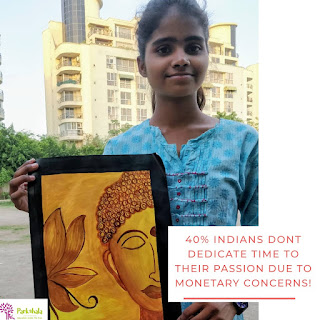MindGrind Mondays : (IL)Literacy in India
India has the LARGEST illiterate population in the world.
According to UNESCO (@UNESCO), India’s literacy rate is at 74%. While we have made progress
in improving literacy over the years, we are still home to 287 million illiterate people. This is 37% of
the global total.
While we might be enrolling more and more children in schools, are they actually learning anything?
The focus on attendance has grown, but what about the QUALITY of education that's being imparted?
While India’s literacy rate rose from 48% in 1991 to 63% in 2006, population growth cancelled the gains.
So, as a country, there was no change in the number of illiterate adults.
The report also states that India is among the 21 countries facing an “extensive” learning crisis. This can
only be combated with a competent education system that helps young children overcome the many social,
economic and cultural factors that stop them from completing their education.
The UN report says, India’s “ambitious” curriculum outpaces the child’s learning ability. It is the MOST
significant factor behind poor learning outcomes of Indian schools. Indian education system needs to go
through a massive reform. The world is evolving rapidly and our current curriculum hasn't changed much
in over 15 years!
in over 15 years!
The report, ‘Education for all – global monitoring report 2013-14’, places India in the top bracket of
countries likely to achieve a primary enrolment target of at least 95 per cent, but questions the quality of
education, placing India among the 21 countries facing an “extensive” learning crisis.
There is a serious need for a more holistic approach to education in India if we want to make an ACTUAL
rather than a statistical improvement.
rather than a statistical improvement.
Our goal at Parkshala is to facilitate a more holistic approach towards learning among the children who
hail from the lower strata of the society by providing them with a safe space - a space to nurture their
creativity, a space for them to be themselves, a space for them to play to their strengths as opposed to
following the herd, a space where they learn the practical aspects of what's been written in their textbooks
for the last 15 years.
Contact us at contact.parkshala@gmail.com
hail from the lower strata of the society by providing them with a safe space - a space to nurture their
creativity, a space for them to be themselves, a space for them to play to their strengths as opposed to
following the herd, a space where they learn the practical aspects of what's been written in their textbooks
for the last 15 years.
Contact us at contact.parkshala@gmail.com



Comments
Post a Comment